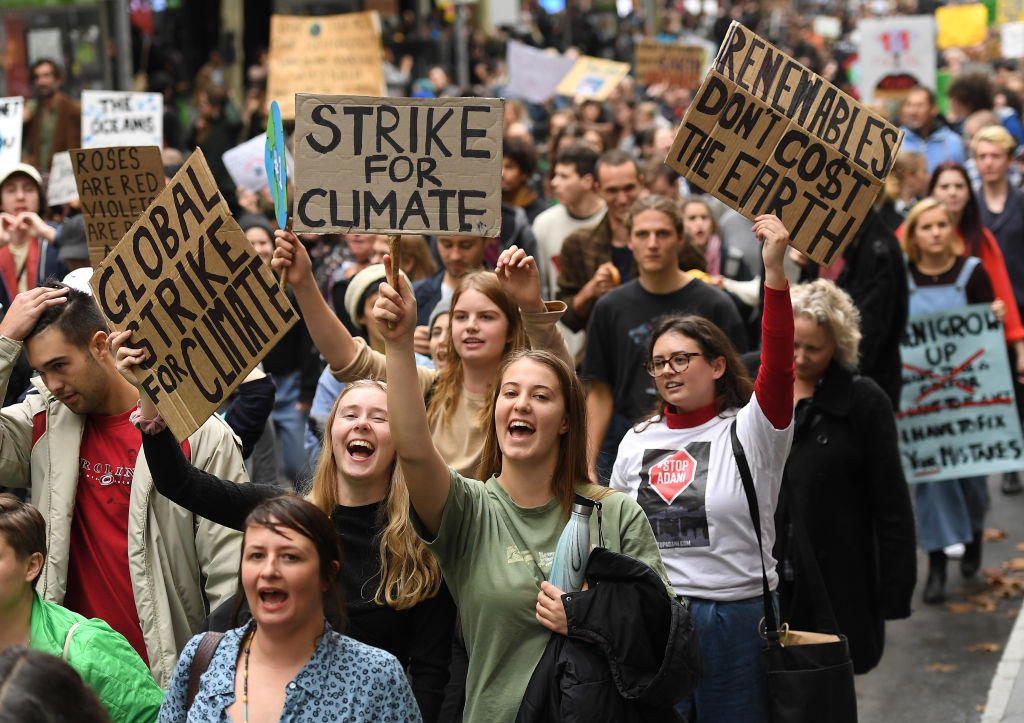The latest Lowy Institute poll indicates that Australians are increasingly concerned about climate change and its implications. Three figures are particularly telling.
First, and perhaps most striking, Australians have identified climate change as the most critical threat to Australia’s “vital interests”. Almost two thirds (64%) of respondents described climate change as a critical threat, above cyber attacks (62%), terrorism (61%) or North Korea’s nuclear program (60%), for example.
While perhaps surprising, this continues a steady increase in this view of climate change in the Lowy polls over the past five years. It also builds on a 2017 Senate Inquiry into the national security implications of climate change. And as I wrote The Interpreter that same year, the results of an unofficial survey of academic researchers in the field of international security indicated that these researchers overwhelmingly identified climate change as the most pressing threat to global security.
Second, the latest poll indicates that Australians believe energy policy should primarily orient around reducing carbon emissions. This policy priority was identified as the most important by 47% of respondents, higher than reducing household bills (38%) or reducing the risk of power blackouts (15%).
Third, 61% of Australians surveyed agreed with the statement that global warming is “a serious and pressing problem (and) we should begin taking steps now even if this involves significant costs”. This is the highest point for over a decade (since 2008).

So is this grounds for hope that we will see substantive action on climate change in Australia? Will public attitudes ultimately drive new and ambitious climate policy?
Aside from the ideological commitments of this government, there are three big reasons to be cautious.
First, the poll indicates significant demographic differences between Australians. While younger Australians seem deeply concerned about climate change and its implications, older Australians are more ambivalent. Over three quarters of Australians aged 18-44 (76%) agreed with the proposition that “climate change is a serious and pressing problem (and) we should begin taking steps now even if this involves significant costs”. By contrast, less than half of those aged over 45 (49%) agreed with this proposition. Combined with significant differences in attitudes to climate change between rural and urban voters, and based on levels of wealth and education, this suggests continued divisions across the country that policy-makers may struggle to overcome.
Second, Australians had a chance at the ballot box only weeks ago to send a strong and meaningful message about their desire for climate action, and largely didn’t. While the Greens did quite well, Australians ultimately voted in a government that had gone to the election with minimal emissions reduction targets, a commitment to new fossil fuel projects, no new emissions reduction policy and a track record of steadily rising emissions.
Third, we’ve been here before. One fascinating feature of the Lowy poll figures on climate change concern since 2006 is the seemingly inverse relationship between public concern and policy ambition. The high point of support for action on climate change was the first year of the survey in 2006 (68%), when John Howard was overseeing continued rises in greenhouse emissions and refusing to ratify the Kyoto Protocol. This began to drop quickly and significantly under Labor governments, reaching a low point when the carbon tax came into effect in 2012 (36%). Under subsequent conservative governments from 2013, when Tony Abbott was elected promising to repeal the carbon tax, public concern has steadily grown to the current figure of 61% (2019).
These latter two points suggest that when Australians are ultimately faced with supporting strong climate action, they get cold feet. Perhaps this is the product of effective mobilisation by forces and voices for climate inaction. But it probably shouldn’t be this easy for public opinion to be manipulated, at least not to the scale we’ve seen with climate change.
A simpler, if more cynical, interpretation is that when we think we might need to make sacrifices to act on climate change, our concerns about climate change itself starts to wane, at least relative to other considerations.

The challenge for substantive policy action all this poses is significant.
It involves overcoming divisions across the country on this issue, encouraging Australians to recognise and prioritise the threat of climate change itself over action designed to address it, and developing alternative narratives to the (often misleading) claims about the irrelevance of Australian mitigation action or the economic costs of transitioning away from fossil fuels. It should also ideally involve Australians recognising obligations to outsiders more vulnerable to climate change, less responsible for climate change and less able to adapt to it.
The big question is whether any political leaders in Australia are capable of harnessing current concern about climate change and sustaining broad community support for policy that substantively addresses it.
Time will tell. Although if the scientists are right, we’re running out of it.

